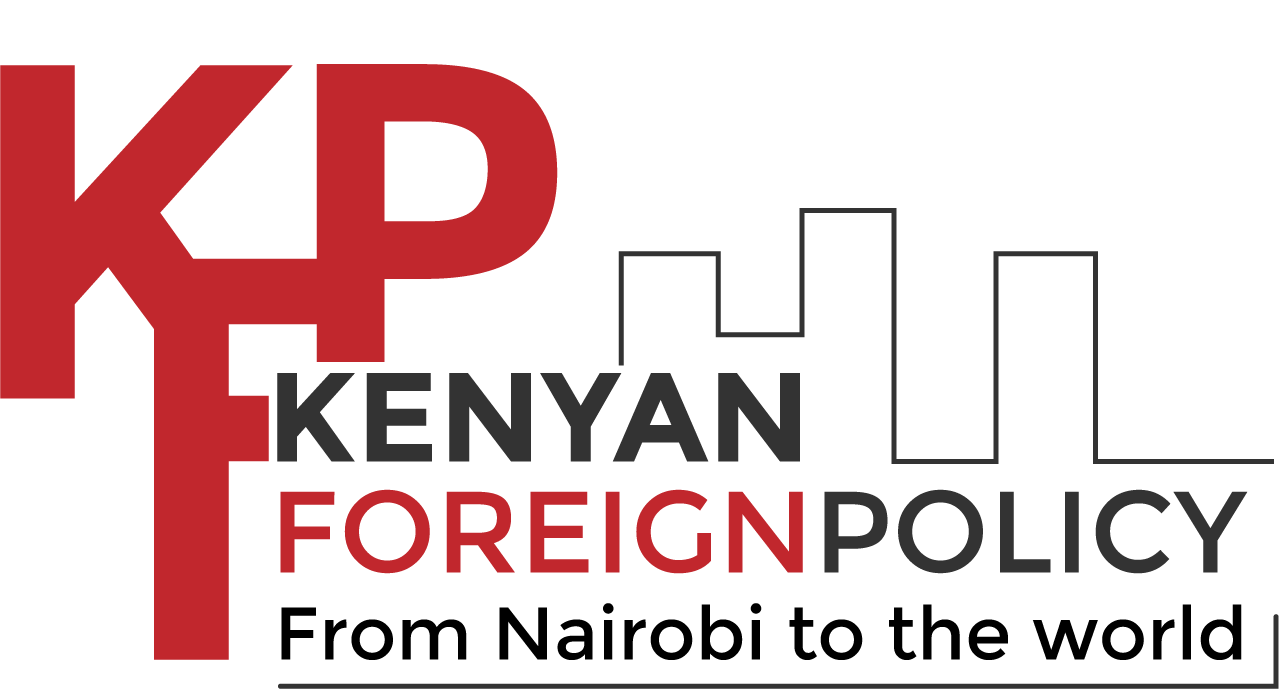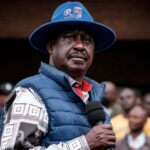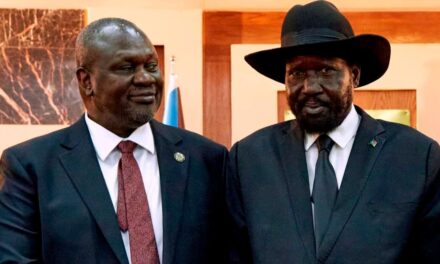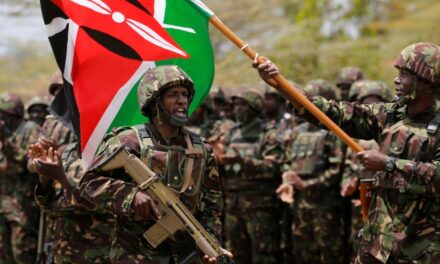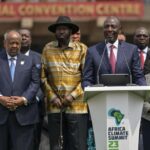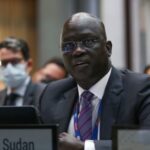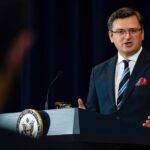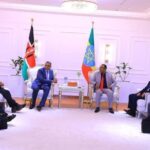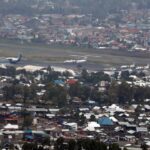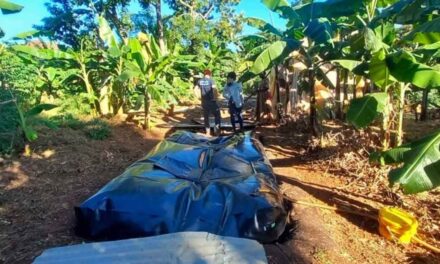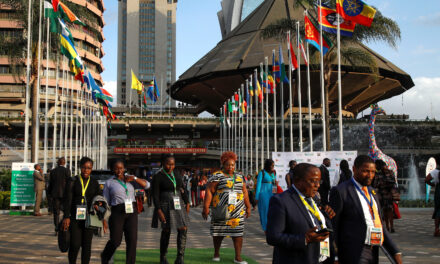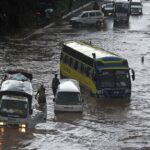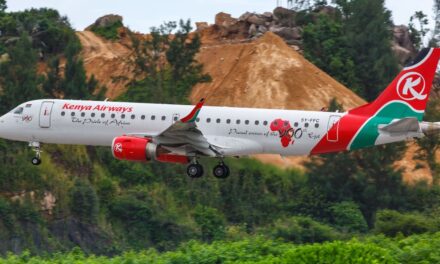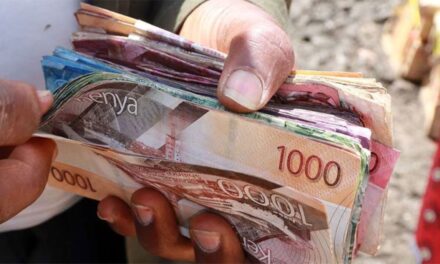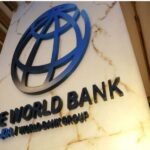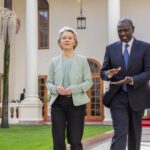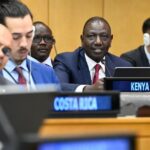
Kenya Drops Western Sahara Envoy as Morocco Ties Thrive
Posted by Mwangi Maina | Mar 30, 2024 | DIPLOMACY, MUST READ


Kenya, under President William Ruto, has decided against accrediting an ambassador to the Sahrawi Arab Democratic Republic, currently exiled in the Algerian camp of Tindouf.
In 2021, the Kenyan envoy to Algeria Peter Katana presented credentials to the leader of the Sahrawi Arab Democratic Republic, Brahim Ghali, in Tindouf camp.
This marked the first accreditation of a Kenyan diplomat to Western Sahara.
The decision was based on Nairobi’s prerogative to determine where diplomatic missions are established and which countries those missions will be accredited to.
The Foreign Affairs PS told Kenyan Foreign Policy that “there is no strategic commercial value in accrediting an envoy to Western Sahara”, thus justifying Kenya’s decision.
When questioned about the potential closure of the Western Saharan embassy in Kenya, the senior Kenyan foreign policy official stated, “We won’t interfere with their Nairobi offices.”
This March, Kenya announced its inaugural ambassador to Rabat, Morocco, which asserts control over Western Sahara.
This technically means Nairobi is prioritising diplomatic and economic relations with Rabat over maintaining a presence in disputed territories like Western Sahara.
This is also a significant change in policy regarding Kenya’s diplomatic representation in Western Sahara.
Previous governments in Nairobi ignored establishing relations with Morocco and prioritised engaging bilaterally with Algeria, which backs and houses the Polisario Front.
Algeria, a primary adversary of Morocco in the Maghreb and a key supporter of Brahim Ghali-led government will likely be displeased by Kenya’s decision.
Shortly after his inauguration as Kenya’s president in September 2022, William Ruto met with Morocco’s top diplomat Nasser Bourita to confirm his long-expressed intention to sever relations between Nairobi and the Algerian-backed Sahrawi Arab Democratic Republic (SADR).
Ruto, who had pledged “cheap” fertiliser for farmers during his campaign, explicitly stated in a now-deleted tweet his intention to “wind down” the presence of the SADR in Nairobi.
This decision was hours later revoked by the foreign ministry after Kenya’s credibility took a beating over the resolve to cut ties with an AU member state.
In what appeared to be a subtle jab from the outgoing Kenyatta-led administration towards Ruto’s new establishment, former Foreign PS Macharia Kamau noted, “Kenya does not conduct its foreign policy on Twitter.”
Kenya imported nearly 1.4 million bags of fertiliser through Morocco’s state-owned OCP Group, a leading phosphate and fertiliser giant.
The move was to boost Kenya’s agriculture output and support local farmers amid supply shortages and high fertiliser prices.
For considerable period, Nairobi had consistently supported the independence of Western Sahara and remained committed to an age-old AU policy of recognising the SADR as a sovereign state.
It remains uncertain whether Nairobi will continue recognising SADR as a sovereign state.
However, Foreign PS Korir Sing’oei conveyed a message from President Ruto to the Moroccan King through his Foreign Minister, Nasser Bourita in mid-March, during which they discussed the Western Sahara conflict.

In the eighties when former Kenyan President Daniel Moi took over as the OAU chairperson, he set an energetic pace in efforts to resolve the Western Sahara conflict.
Morocco’s royalty King Hassan II flew to the Kenyan capital of Nairobi in 1981 to attend an OAU summit, where he withdrew his opposition to a plebiscite among the inhabitants of the former Spanish Sahara that would provide them with a choice between Independence or unification with Morocco.
Proposing a ceasefire and an internationally monitored referendum, Hassan aligned his country with a series of OAU and UN resolutions calling for such an action.
According to a declassified report by the US Spy agency CIA, they “believed the King may have counted on being able to control the mechanics and outcome of the referendum and also may have hoped that his cooperation would encourage the OAU to back down on its move toward accepting the SADR as a member.”
An OAU Implementation Committee on western Sahara had been created under the leadership of President Moi for negotiating a ceasefire date and terms for a referendum.
In an October 1981 letter addressed to the Moroccan royalty, President Moi, in his capacity as the OAU chair, expressed concern over Morocco’s envoy to the UN introducing a separate resolution on Western Sahara, distinct from the one submitted by Kenya.
“It has been brought to my attention that your Representative in the United Nations has introduced a separate resolution on Western Sahara. This action does not contribute to progress in the implementation of the decision of the Implementation Committee on the question of the Sahara and should not be encouraged,” wrote President Moi.
He added, “It is absolutely essential that we should be united in our search for a peaceful solution to the question of Western Sahara.”
The former Kenyan leader emphasised, “Africa’s demand is clear: adherence to OAU decisions and a peaceful settlement for Western Sahara,” urging Rabat to withdraw the resolution.
He called for the OAU implementation committee to fulfil its mandate effectively for Western Sahara.
Your support empowers us to deliver quality global journalism. Whether big or small, every contribution is valuable to our mission and readers.
